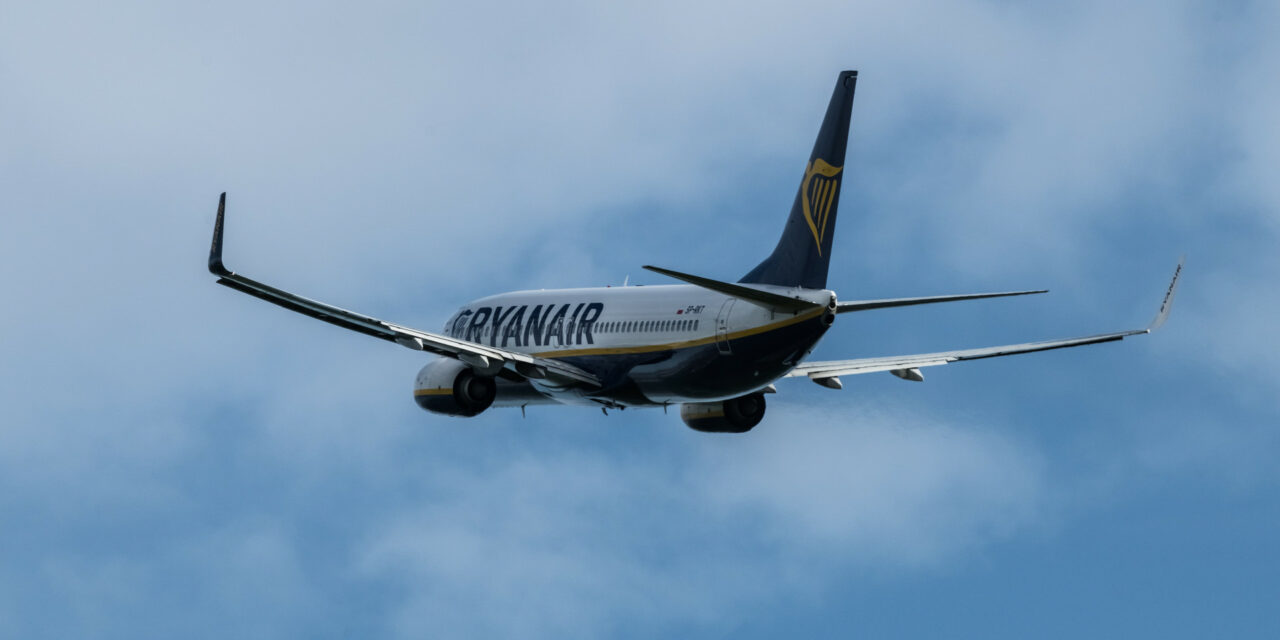The attitude of the discount airline Ryanair to the extra profit tax imposed by the Hungarian government from July has become harsh, to which the multi-company, which is the market leader in Hungary, is reacting with price increases, planned fewer flights, and most recently with statements insulting the Minister of Economic Development.
It is a fact that in the business model of discount airlines, the passengers who provide the income are at most in the first place in the communication, but in reality they are only important until the price of the plane tickets is not charged to their bank card. Also, it is now clear that Wizz Air, like Ryanair, also wants to make travelers pay the extra profit tax. It is
political decision-makers and supervisory bodies must communicate clearly and firmly that companies cannot behave in this way and that there is no room for personalization, Ferenc Galgóczy told Magyar Nemzet.
The Budapest ground handling and air transport industry expert said this in connection with the fact that the case of the Ryanair airline, which sharply criticized the government due to the new special tax affecting several industries, has now reached a scandalous level.
As Magyar Nemzet wrote, an official procedure was initiated last week due to what appeared to be an unfair commercial practice regarding the company's pricing, since the amount of the special tax valid from July will also be paid retroactively with their passengers.
The government has every right to expect extra profit producers to contribute to the stability of the economy.
In response to this most recently
the CEO of the Irish-based multi-company, Michael O'Leary, referred to the minister of economic development representing the Hungarian government on this topic with ordinary words in the spirit of fear of profit.
In his announcement on Tuesday, and then in an interview with Hvg.hu, the company manager used personal and insulting terms about the special tax, calling Márton Nagy "idiot", "flawed", "stupid", and questioned his knowledge of economics. According to O'Leary, the imposition of the new tax by the government is nothing more than roadside "highway robbery", which reduces competitiveness in tourism, which is why Ryanair will reduce its flights to Hungary.
While the general manager formulated ordinary messages unbecoming of a businessman, the minister responded in an elegantly restrained reply: this style is unacceptable and leaves something to be criticized. Márton Nagy said,
I wish the answers were so quick when Hungarians turn to the airline with customer complaints.
We hope that they do not handle the problems of passengers with such arrogance, although their established practice is not very empathetic according to experience, he noted, adding that the government does not understand the double standard.
If Ryanair pays the same tax in, for example, Germany, the Netherlands, Sweden and France without any problem, in a law-abiding manner, why does it have a problem with the Hungarian procedure? - he suggested, noting that it is understandable that a multi-company protects profits, not Hungarian families, yet everyone is expected to behave fairly.
The authorities will take action against those who do not act in this way, said Márton Nagy.
– While Ryanair refers to the government with unqualified indicators, it is clear that the discounters operating from Budapest with significant capacities
makes the passengers pay the special tax, even though they were warned against it. It must also be seen that the practices of these airline companies are not only questionable for this reason.
Their business policy should also be examined vis-à-vis their suppliers or ground service partners, who have now become more "vulnerable on ground", Ferenc Galgóczy told our newspaper.
He pointed out: in addition to procurement procedures that fundamentally lack business integrity, unscrupulous price negotiations, service fees expected below the cost price level and payment deadlines of several months, discounters demand top performance, and while they ask for money immediately for "every breath", the servers on the ground are realistic and they don't want to pay prices that represent a fair profit.
Although it is not yet known how many domestic passengers canceled their previous purchases for July tickets at the discount store by today's cancellation deadline, there are a lot of comments on social media about
tourists do not accept the tax in the ticket prices.
Mainly because the representatives of the company addressed the government in an unacceptable style, from a "high horse", even though, according to experience, Hungarians are made to travel in poor conditions in exchange for cheapness.
It often happens that passengers are let down by the company, and these cases are neither rare nor numerous, both at home and abroad.
The discount company records many cases in Europe that ended in punishment.
For example, in 2015, the Economic Competition Office imposed a HUF 50 million fine because the information on their Hungarian-language booking site was incomplete and misleading for years, while in 2013 they were fined HUF 15 million for providing false information in the action following Malév's bankruptcy. Among others, the authorities of the Netherlands, Italy, France, and the United Kingdom have already punished the company.
The corporate policy of offering extremely low wages, which eviscerate employees, is a fundamental feature of the airline, and behind the flight delays and cancellations are usually the desperate actions of striking employees. The flight attendants in one of the company's most important summer markets, Spain, will go on strike in two weeks.
Source and full article: Magyar Nemzet
Featured image: MTVA/Imre Faludi













